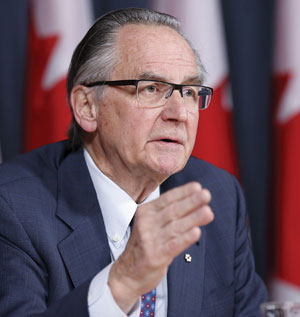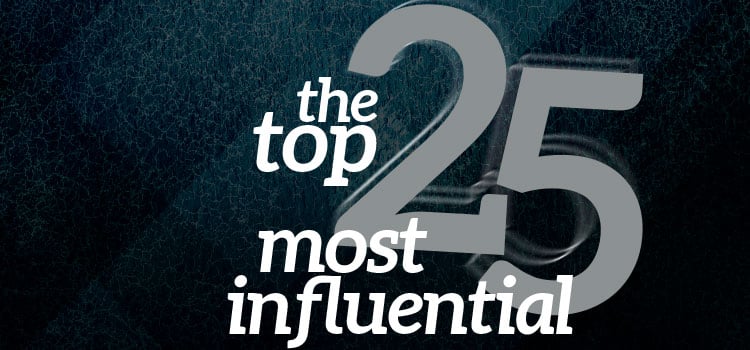
Canadian Lawyer’s Top 25 Most Influential in the justice system and legal profession in Canada is now in its seventh year. The Top 25 is always the magazine’s most-read, and most commented-on, feature. Its popularity — both in terms of the number of nominations we received as well as the number of votes in the public poll — highlights the engagement and pride in their colleagues that lawyers, judges, and others in the legal profession have.
As we do every year, we put out a public call for nominations to legal groups and associations representing a variety of memberships and geographies; last year’s Top 25 honourees; our readership; and our internal panel of writers and editors.
Likely due to the introduction of the new “young innovators” category, this year, we far surpassed all previous years, receiving more than 200 nominations, which the internal panel whittled down to about 160 candidates who met our criteria. The pool of nominees was so strong in the young influencers category that it alone had 70 candidates. It truly was amazing to see what these lawyers under 40 are accomplishing — in all areas of the law and from all across the country. As the editor of Canadian Lawyer for almost a decade, and someone who is constantly impressed with the work lawyers do, even I was blown out of the water by the quality of the candidates.
Once we had the long list of candidates, we posted it online and polled our readers for their votes — and you let us know in droves what you thought. The number of voters increased by 22 per cent over last year, with 11,071 people participating and commenting on those who they thought made their mark over the past 18 months. The final list of 25 honourees is based on that poll with input and the last word from the Canadian Lawyer editorial panel.
Being named as one of Canadian Lawyer’s Top 25 Most Influential highlights the important and significant work jurists have done in the last 18 months or so. Some of them may have steered big deals or made the most splash on the news pages — but it’s about their leadership and influence in a larger sphere. It is not a recognition of lifetime achievement, but inclusion in the Top 25 speaks to a level of respect, the ability to influence public opinion, and to help shape the laws of this country and others; contribution to the strength and quality of legal services; involvement and impact within the justice community; and social and political influence and involvement.
The Top 25 is split into five areas of influence with five winners in each of the following categories: the new young influencers; government, associations, and non-profits, including: courts, public inquiries, and officers of Parliament; changemakers; criminal and human rights law; and corporate-commercial law. Nominees were put in the category in which the individual exercised their influence during the time period, which at times may differ from their main area of practice.
A number of previous honourees are back this year: Senator Murray Sinclair’s work on the Truth and Reconciliation Commission, whose report and recommendations were released last fall, continues to be an integral driver to changes in the way First Nations people, lives, and law are perceived and treated in Canada. Human rights and immigration lawyer Lorne Waldman continues to be involved in cases that are an integral part of the dialogue in Canadian society. Ontario Superior Court Justice Paul Perell reappears on the list once again due to the influence and importance of the decisions that he’s penned.
Marie Henein, who first appeared on the list last year, was almost guaranteed a spot again as a result of her work on the Jian Ghomeshi trial and the ripple effect of the case in both the legal community and beyond. She was, by far, this year’s top vote getter. She was lauded by voters for, among other things, withstanding “tremendous pressure and negative feedback, yet represented the profession admirably,” as well as for being “an inspirational lawyer and a role model for young female lawyers.”
With the introduction this year of the young influencers category, we see a group of extremely talented and dedicated lawyers under 40 who are making a real impact in the profession and their communities. To a certain degree, every single one of the 70 nominees deserved to be on the list because their stories are so varied and incredibly impressive. We had candidates from practically every province in a wide variety of practice areas and industries. From leading their local bar associations, to arguing precedent-setting cases in their first years of practice, to embracing new ways of practising and blazing trails in their communities, all of the nominees are setting the bar high and poised for ongoing success. Five of the most impressive candidates are highlighted in this year’s Top 25.
While only 25 of the incredible nominees can make the final list, every single one of them has had an impact, and their accomplishments are many and varied — not to mention many of them done behind the scenes or on a pro bono or volunteer basis. It’s these lawyers and judges from across Canada and many different areas of practice who uphold the greatest ideals of the profession and are worthy of recognition.
Below we present the Top 25 Most Influential for 2016. They are listed with the top vote getter in each category first, followed by the others in alphabetical order.
Want to add your own kudos? Disagree with the choices? Did we miss someone obvious? E-mail it to [email protected]. We’ll be doing it all again next year.
* This article was prepared with the assistance of Mallory Hendry.
Young Influencers
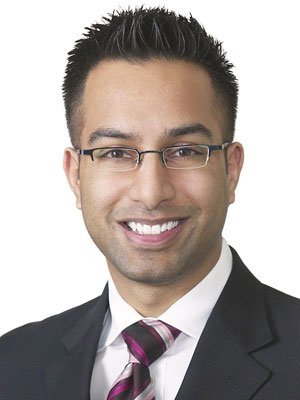
Ranjan Agarwal Partner, Bennett Jones LLP Toronto
Last year, Agarwal was counsel for Pro Bono Law Ontario in the Supreme Court of Canada’s decision in Hinse v. Canada (Attorney General) on the issue of indemnification for legal costs in private pro bono litigation. He is president of the South Asian Bar Association of Toronto, Canada’s largest minority bar association and North America’s largest South Asian bar association. He encourages legal leaders, judges, and policy-makers to think about diversity as integral to access to justice. Agarwal consistently calls for a more diverse bar and judiciary, saying it is fundamentally important to increasing public confidence in the justice system, especially among visible minority communities. Agarwal regularly acts for diversity-seeking groups in pro bono litigation. He is a member of the Ontario Bar Association’s equality committee, where he is spearheading the initiative to gather diversity statistics from all CPD presenters with a view to making it more reflective of the bar and the community. Agarwal is also an adjunct professor at the University of Toronto’s Faculty of Law and regularly speaks on class actions, commercial litigation, employment, human rights, and constitutional law.
What voters had to say:
“Is an inspiration to all, with his tireless commitment to the law, including through many pro bono cases.”
“Amazing advocate on raising diversity in the law and access to justice.”
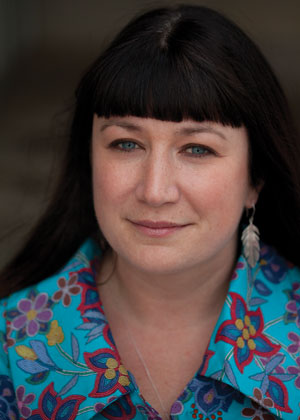
Aimée Craft Assistant professor, University of Manitoba, Robson Hall Faculty of Law Winnipeg
Craft is an emerging intellectual leader working on Anishinaabe and Canadian aboriginal law. Her research and advocacy work is grounded in valuing and living indigenous knowledge. Craft is currently doing research for the Anishinaabe nibi inaakonigewin project, working with Anishinaabe elders to better understand legal principles relating to water. She has worked with aboriginal organizations to organize conferences, develop strategic litigation, deliver public education, and engage in advocacy initiatives. She also developed a strong working relationship with the Assembly of Manitoba Chiefs. Her ongoing work on the Federal Court Liaison Committee on the development of practice guidelines for aboriginal law matters and oral history evidence has been an important and substantive contribution to Canadian law.
What voters had to say:
“Helping our too-often neglected aboriginal nations.”
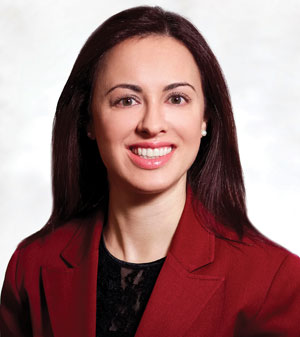
Nadia Effendi Partner, Borden Ladner Gervais LLP Toronto and Ottawa
Effendi is chairwoman of BLG’s Supreme Court of Canada agency group and a member of BLG’s commercial litigation and appeal and review groups. She recently acted for an intervenor in World Bank Group v. Wallace, which represents a significant development in the law, standing as one of only two SCC decisions addressing the scope of international organizations’ immunities and privileges. She represented the Law Society of Upper Canada in appeals in Trinity Western University v. The Law Society of Upper Canada. In June, she was before the Court of Appeal defending the Divisional Court decision that unanimously upheld the LSUC’s decision to deny accreditation to TWU’s prospective law school. The case engages fundamental issues of Constitutional and human rights and administrative law — including the delineation of equality rights, religious freedoms, and the LSUC’s jurisdiction as an administrative decision-maker.
What voters had to say:
“Nadia is one of the brightest and hardest-working advocates I know. Her passion for her clients’ causes and advocacy skills makes her one of the most influential young lawyers in Canada today.”
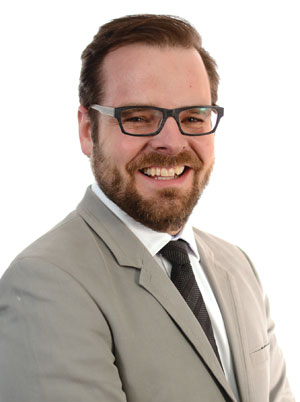
Louis-Alexandre Guay Counsel, Aboriginal Law Directorate, Quebec Regional Office, Department of Justice Canada Ottawa
Most recently, Guay was responsible for the multi-million-dollar settlement of Indian Day School litigation initiated against Canada. With his young team, he advanced the law of Crown responsibility and fiercely worked to change views from within government, selflessly working in the dark for the greater good of facilitating reconciliation of the Crown with First Nations. Guay has been working on Indian school files for more than a decade, contributing to the beginnings of the settlement of the Indian Residential Schools class action litigation against the Crown, and paved the way for the IRS dispute resolution process and thereafter the Indian Residential Schools Settlement Agreement and its day-to-day implementation via an independent assessment process. In this context, he has single-handedly participated in as many as 500 individual hearings.
What voters had to say:
“He’s a hard worker, one of the nicest people I know, so easy to work with and always there to help a colleague. He’s defending his cases with heart and passion! He is the young most influential Canadian lawyer!”
“A great lawyer and a great guy.”
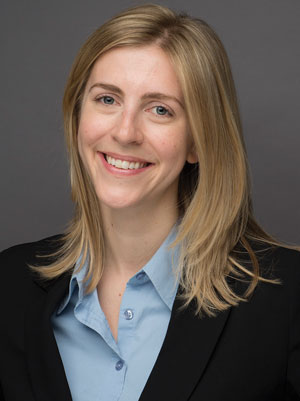
Jessica Prince Senior policy adviser to the Minister of Justice and Attorney General of Canada Ottawa
Prince was a top-tier Bay Street litigator who worked on high-profile cases including intervening for the Canadian Medical Association on the recent Carter case at the SCC. Since last November’s election, she has been working as senior policy adviser to Minister of Justice Jody Wilson-Raybould, who is working on many hugely influential issues at this time, including the inquiry into missing and murdered women, marijuana laws, and physician-assisted death. Prince’s work there is making a strong impact on her community. Prince is a very well connected lawyer and serves as a mentor to many young lawyers, particularly young women.
What voters had to say:
“She fits your category perfectly as a lawyer under 40 who is really making an impact in her communities and in the profession.”
Government/Non-profit
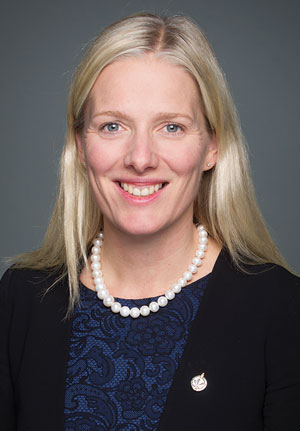
Catherine McKenna Minister of the Environment and Climate Change, MP for Ottawa Centre Ottawa
In the spring, McKenna announced Canada would be ratifying the Paris Accord. Nearly 200 nations adopted the agreement, which calls on the world to collectively cut and eventually eliminate greenhouse gas pollution. She is working to reach agreements with each province on reducing carbon emissions and attempting to form a national plan to reduce levels going forward. McKenna, backed by a majority government with an environmental sustainability mandate, is the first environment minister to stand a chance of effecting real change. She is active on Twitter, connecting to a new audience about Canada’s environmental initiatives. Before politics, McKenna was in-house counsel, worked in private practice, and was executive director of the Banff Forum.
What voters had to say:
“Whether through her work with the U.N. in Timor, here at home working with CREA, or now as Minister of Climate Change and the Environment, Minister McKenna demonstrates her diversity as a lawyer in her ability to move between commercial and trade law, as well as public policy. She embodies the collective responsibility the legal community has to do good for society.”
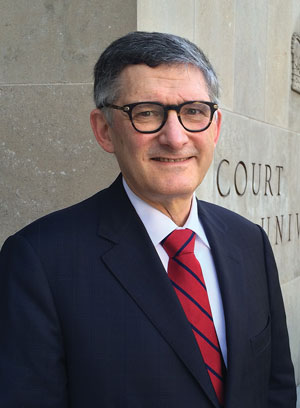
Justice Paul Perell Ontario Superior Court of Justice Toronto
Perell is considered one of the most prodigious and active judges on the bench. He has written many influential decisions relating to: physician-assisted death; civil sexual assault where the plaintiff was a male — he dismissed the case; the Indian Residential Schools class action settlement — he ordered a claimant’s file be destroyed after 15 years unless they consented to publication, and that decision was upheld by the Court of Appeal; numerous decisions to advance the development and operation of class action and mass litigation jurisprudence. His decisions and opinions are balanced, well thought out, and persuasive. Supporters call him the best class action judge in Canada with a keen sense of justice.
What voters had to say:
“Intense and brilliant, dedicated, independent-minded.”
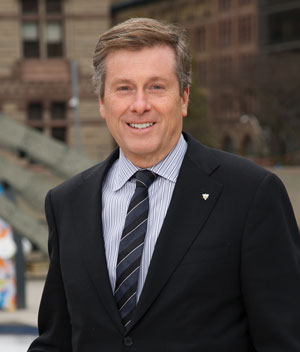
John Tory Mayor Toronto
Elected Mayor of Toronto in October 2014, Tory has exerted his influence on the city in a number of ways including a key focus on improving transportation with a new plan for rebuilding the Gardiner Expressway, increased public transit infrastructure, and action on licensing Uber. However, critics say his initiatives for pedestrians and cyclists have been less than stellar and he faces many funding challenges. In June 2015, he announced the cancellation of the highly controversial practice of “carding,” calling it racially discriminatory. A poll released in June indicated 74 per cent of voters said they approve of the job Tory is doing as mayor — a marked increase over his predecssor’s approval ratings.
What voters had to say:
“Tory has carried the lawyerly ideal into the fields of business and politics, demonstrating a fair-mindedness and rationale basis for policy-making.”
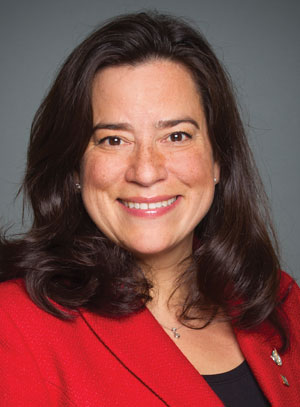
Jody Wilson-Raybould Justice Minister and Attorney General of Canada, MP for Vancouver-Granville Vancouver
As a former regional chief of the B.C. Assembly of First Nations, Wilson-Raybould brings extensive experience in law, public service, and First Nations governance to cabinet. She is Canada’s first aboriginal justice minister who has already changed the course of much litigation under the previous Conservative government. She is also tasked with making major changes to Canada’s law and justice system going forward on a variety of complex issues. She steered the controversial assisted-dying bill through amendments in the Senate to have it passed into law in mid-June. Since its passing, a constitutional challenge has been launched that she’ll have to address. Next up: medical marijuana legislation.
What voters had to say:
“Her position allows indigenous children to dream of what we can be.”
“Wilson-Raybould is steadfast in her dedication to instilling integrity in every facet of her work and that of the department. . . . She is an incredible force in the legal field, and Canada is better because of her attitude and her work.”
{module 359}
Changemakers
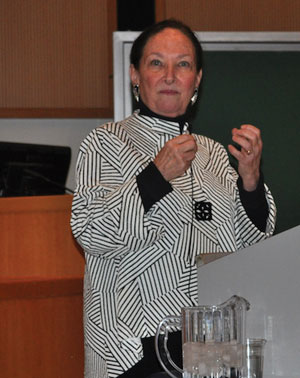
Justice Rosalie Abella Supreme Court of Canada Ottawa
This year, Abella became one of only three other Canadians — and the first female Canadian — to receive an honorary law degree from Yale University, the latest in a long line of honours for the well-respected judge and human rights defender. A Yale press release called Abella “one of the world’s finest living judges.” Among her many rulings from the SCC, Abella recently and again took a stand for equality rights in the Carter v. Canada decision. The decision was a landmark one for Canada and has already changed the legal landscape when it comes to assisted dying. With a unique animal rights decision in June, Abella was the sole dissenting voice in a ruling that said penetration was a requirement for bestiality. She argued in her opinion that acts with animals are “inherently exploitive” and the narrow definition of bestiality “completely undermines the concurrent legislative protections for animals from cruelty and abuse.” Many peg Abella as the next chief justice of the Supreme Court after Chief Justice Beverley McLachlin retires in 2018.
What voters had to say:
“She is a visionary that is ahead of her time. Her judicial reasoning that was often a dissenting decision in her earlier decisions is now often a majority decision. Her consideration of social justice issues facing the impoverished and vulnerable provides for a judiciary that best represents Canada’s value set.”
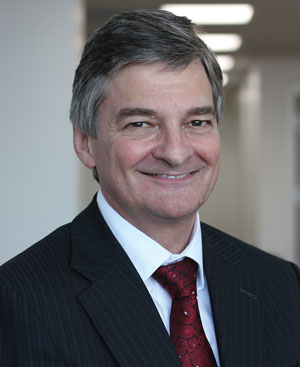
Chris Bentley Executive director, Ryerson University’s Law Practice Program and Legal Innovation Zone Toronto
Bentley had an illustrious political career as a former Ontario attorney general and as a Liberal leadership candidate, but he has been making interesting waves in the legal industry recently. He is a staunch promoter of legal innovation and is pushing hard to bring change and innovation to Canada’s somewhat staid legal profession, particularly by instilling innovative sensibilities in potential and young lawyers. He runs the experimental Law Practice Program at Ryerson, where he also helped to establish the Legal Innovation Zone, which partnered with Osler Hoskin & Harcourt LLP earlier this year. Bentley is very active in the profession, making educators and practitioners examine what they need and how to work together to move the profession and practice of law forward.
What voters had to say:
“As a mentor in the LPP . . . I was inspired by Chris Bentley’s commitment to the integrity of the program, its core mission, and candidates alike.”
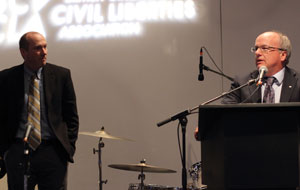
Craig Forcese and Kent Roach Associate professor, University of Ottawa Faculty of Law; and Professor & Prichard Wilson Chair in Law & Public Policy, University of Toronto Ottawa, Toronto
This duo more than anyone helped educate the Canadian public on the pitfalls and issues of the previous federal Conservative government’s proposed anti-terrorism laws. Forcese and Roach’s approach to influencing public policy development also changed the way academics contribute it. They ditched traditional models in order to engage in real time on bill C-51, launching a blog about it (antiterrorlaw.ca), publishing their work on the world’s largest open-access database — the Social Science Research Network — sending it to public policy-makers, writing op-eds, and appearing before parliamentary committees. Their book False Security: The Radicalization of Canadian Anti-terrorism, will be published this fall.
What voters had to say:
“Had tremendous impact this last year!”
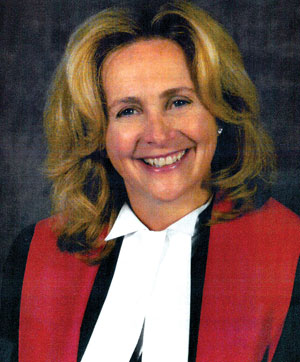
Justice Sheila Martin Alberta Court of Queen’s Bench Calgary
Martin made the first ruling allowing a woman with ALS to have doctors help her end her life. It was the first decision under the process created by the Supreme Court of Canada in the interim period when the court’s decision made the old law invalid and before the government had introduced a new one. It set an important precedent that, while applicable for a short period of time, set out a process for patients seeking access to physician-assisted death. Martin had to decide how many doctors were needed to verify the applicant’s physical and psychological suffering and whether a psychiatrist was required to assess her mental competence. The Alberta decision also had to be applicable in British Columbia, where the patient would go for the procedure.
What voters had to say:
“Not only an eminent jurist but an erudite and inspiring professor. Justice Martin has been an inspiration to a generation of lawyers who benefited from her teaching at the University of Calgary.”
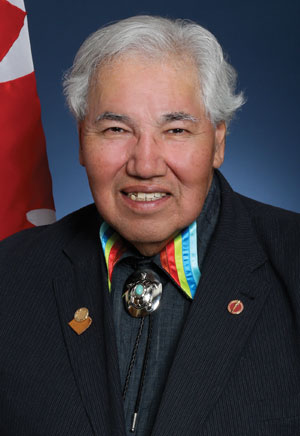
Murray Sinclair Senator, chairman of the Truth and Reconciliation Commission of Canada Winnipeg
A Top 25 honouree last year, Sinclair’s Truth and Reconciliation report is having a substantial impact on Canadian society including law schools that are moving on its recommendations to include more aboriginal law and legal and cultural understanding of aboriginal dispute resolution. His recent appointment to the Senate of Canada means his strong voice continues to influence Canadian society and ensure the rights and needs of First Nations will always be heard. He was also among this year’s inductees to the annual Ka Ni Kanichihk elders’ list in Winnipeg. He is among seven others nominated by indigenous political and service organizations. Sinclair recently called on the city of Ottawa to adopt the UN Declaration of Rights of Indigenous Peoples as a means to engage with Canada’s First Nations.
What voters had to say:
“Above reproach. A beacon of hope, forgiveness, and true reconciliation in our country.”
“Mr. Sinclair made a profound impact on the lives of all indigenous people of Canada. I thank him for his role in ensuring the rest of Canada hears and knows the impact residential schools continue to have on our families and communities.”
Criminal/Human-Rights

Marie Henein Partner, Henein Hutchison LLP Toronto
Henein’s defence of Jian Ghomeshi and all that has surrounded that high-profile case underpinned her recent substantial level of influence. The personal attacks and negative treatment she received in the wake of the trial opened up a much wider public discussion on the role of women in the law and as professionals overall. The very public case she was defending also heightened the level of examination of the way sexual assault trials are conducted. Henein’s place as a well-respected member of the bar who mentors many young women, particularly in the male-dominated criminal bar, has been cemented. Her recent speaking engagements have drawn hundreds of attendees to be inspired and hear her war stories. Henein is strong and unflinching in her dedication to the law and a role model to many inside and outside the legal profession.
What voters had to say:
“A true powerhouse and an inspiration for all those pursuing the rights of the accused.”
“Excellent work defending a man who public opinion had already turned against; excellent work defending herself when criticized for it.”
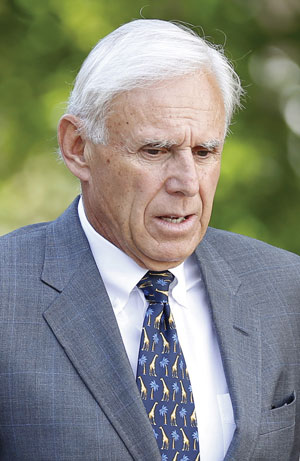
Donald Bayne Partner, Bayne Sellar Boxall Ottawa
In what was perhaps the second-most high-profile criminal case in the last year, Bayne represented embattled Senator Mike Duffy who faced 31 counts of fraud, breach of trust, and bribery over Senate expenses. Bayne’s arguments resulted in Duffy’s acquittal on all of them. The ruling was not appealed, but the senator is still facing a battle in the Red Chamber over repayments of some expenses. Because of the outcome of the trial, however, there is speculation the ruling could stave off attempts to charge other senators with similar crimes. Post-trial, there have also been changes to Senate spending rules. Bayne is a giant of the criminal bar with a four-decade career working on seminal murder, war crimes, and extradition cases as well as high-profile inquiries such as Somalia and Maher Arar.
What voters had to say:
“Donald Bayne was a fierce advocate and tactically brilliant lawyer on Duffy. There is no one else like him.”
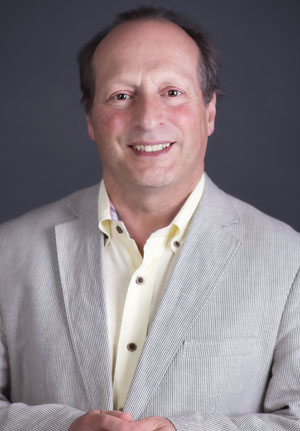
Lorne Waldman Waldman & Associates Toronto
A previous Top 25 honouree multiple times, Waldman’s influence is once again highlighted by the high-profile cases he’s worked on and brought to public attention. He was co-counsel in Ishaq v. Canada at the Federal Court and Federal Court of Appeal. The right of women to wear niqabs during their citizenship ceremonies became a major election issue throughout Canada. He was also co-counsel for JP and GJ at the Supreme Court of Canada in the November 2015 decision B010 v. Canada (Citizenship and Immigration) and was involved in litigation challenging changes to the Citizenship Act that allowed for the revocation of Canadian citizenship of individuals who had been convicted of certain crimes (treason, espionage, and terrorism).
What voters had to say:
“Lorne Waldman is always willing to take on controversial cases with the aim of ensuring all Canadians are treated equally and fairly.”
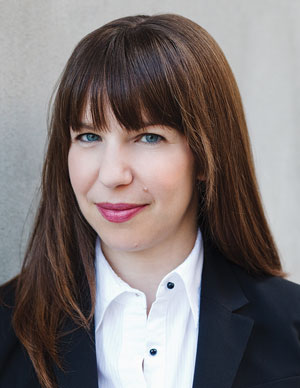
Sarah Clarke Principal, Clarke Child & Family Law Toronto
Clarke was co-counsel for First Nations Child and Family Caring Society in Caring Society v. Canada, a case that led to the Canadian Human Rights Tribunal finding that the federal government’s underfunding of First Nations child welfare programs discriminates against Canada’s aboriginal people. Described as “groundbreaking” from both legal and social perspectives, the case left the door wide open for similar applications around services such as education, health care, and policing. She has worked extensively with and for First Nations on child welfare and adoption proceedings. She has argued civil and family law matters before all levels of court in Ontario, the Federal Court of Appeal, and the Supreme Court of Canada.
What voters had to say:
“Outstanding in every way, compassionate, and a great leader offering inspiration and encouragement to others in her field to follow her path. There’s no challenge too big for her to handle.”
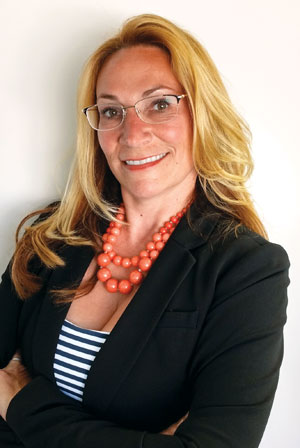
Cheryl Goodier Assistant Crown attorney, York Region Newmarket, Ont.
Currently, Goodier is the child abuse and sexual violence lead in York Region. She has had tremendous influence in the courts, essentially transforming the way cases of child abuse and sexual abuse are handled in positive ways. She is a skilled and fearless advocate, who invariably handles any serious — and often difficult to prosecute — criminal case involving sexual abuse of children in the Newmarket courthouse. Handling these cases effectively as a Crown involves intelligence, tenacity, dedication, and concern for the most vulnerable members of our community. She is frequently sought after by other counsel and police officers for advice and guidance in this area.
What voters had to say:
“Cheryl’s prosecution strategies are second to none. Her passion and dedication to the rights of victims of child abuse shines through everything she does. Cheryl’s a game changer and is most deserving of this award.”
Corporate-Commercial
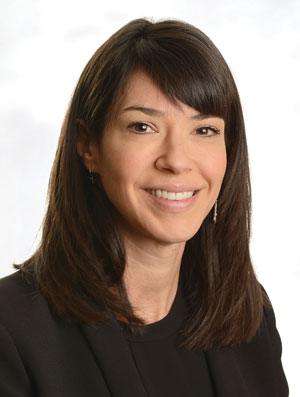
Éloïse Gratton Partner, Borden Ladner Gervais LLP Montreal
In the current age where the importance of and even the meaning of privacy mean so many different things to different generations, Gratton is a forward thinker who leverages her in-depth understanding of privacy laws to practical business solutions. One of Canada’s foremost experts in the field of privacy, Gratton is recognized as the “go to” person, relied upon by both federal and provincial privacy commissioners, as well as by the federal government. In April, she provided a paper on the right to be forgotten and online reputation to the Office of the Privacy Commissioner of Canada. Gratton writes and maintains an award-winning blog called “Privacy and IT Law” and is one of the most sought-after speakers at privacy conferences — including the Canadian Privacy Summit and the IAPP’s Global Privacy Summit & Canada Privacy Symposium — and in the media.
What voters had to say:
“Thank you for ensuring that privacy matters.”
“Ten steps ahead of everyone on privacy matters, great university teacher.”
“Passionate, sharp, and eloquent.”

Bindu Cudjoe Deputy general counsel and chief administrative officer, BMO Financial Group Toronto
Cudjoe leads the operations of the legal, compliance, and investigative & security services groups for BMO. She has driven BMO’s external law firm management program including the creation of management tools and their governance model. She was the founding member of the Diversity Council of the legal, corporate & compliance group and is co-chairwoman of the talent development committee in the areas of recruitment and retention. She spearheaded efforts to align a fresh recruiting process with best practices for diverse recruitment and retention and is also an advocate for diversity in-house, which she does at BMO and with her work with the South Asian Bar Association.
What voters had to say:
“She is a mentor and leader in the provision of legal services. She has a great vision, and her approach is freshly innovative.”
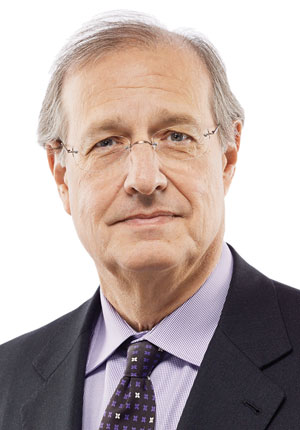
Neil Finkelstein Partner, McCarthy Tétrault LLP Toronto
Finkelstein has been particularly active in high-profile commercial litigation cases recently. Among them, he represented the successful appellant Harish Bhasin, in Bhasin v. Hrynew, in which the Supreme Court of Canada for the first time recognized a legal duty to act honestly and in good faith in their contractual obligations. It’s a landmark decision that dramatically impacts the obligations of all parties to commercial contracts in Canada. Finkelstein was also lead counsel to Abbott Laboratories in Charlton v. Abbott Laboratories, Ltd., which set an important precedent in the area of product liability class actions; and Uber Canada Inc. in Edmonton (City) v. Uber Canada Inc., where he defeated an application by the city for an interlocutory injunction to prevent Uber from operating in Edmonton.
What voters had to say:
“Finkelstein’s helming of one of the most important contract cases in the last 20 years is another feather in the cap of his storied litigation career.”
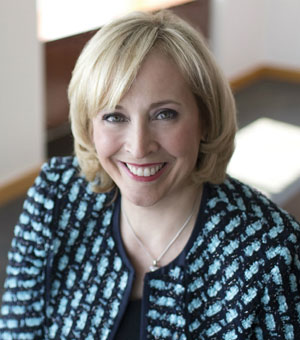
Carol Hansell Founder and senior partner, Hansell LLP Toronto
Hansell was recently appointed by Ontario Premier Kathleen Wynne’s government to chair the Business Law Advisory Council, where she’ll lead the team making recommendations to modernize the province’s business law framework. Over the past decade or so, Hansell has turned herself from an M&A lawyer into a champion of corporate governance. Expanding her horizons further, at the beginning of this year, Hansell LPP launched Hansell Board Evaluations providing expert, independent guidance to boards in identifying opportunities to enhance their effectiveness. In May, she launched a unique, powerhouse advisory firm, Hansell McLaughlin Advisory, which brings together legal, government relations, and communications teams.
What voters had to say:
“Inspirational role model for women in corporate law.”
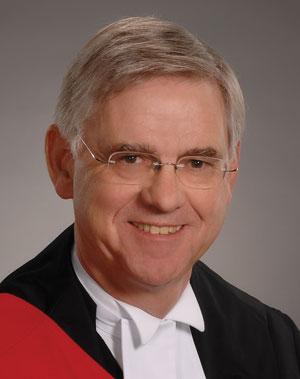
Justice Frank Newbould Ontario Superior Court Toronto
Newbould, the team lead of the Commercial List Court in Toronto, has been lauded by all sides for his formidable work in the unprecedented and lengthy cross-border Nortel trial — the largest insolvency restructuring proceeding in Canadian history. He not only had to work with a U.S. judge hearing the complicated case from a Delaware court, he also embraced the technology that made it all happen in real time. His work on one of the most complex cases in the country was exemplary in a province that still struggles to introduce technology to its courtrooms. Leave to appeal his decision on the pro-rata allocation of assets among the Nortel estates was denied by the Ontario Court of Appeal in May.
What voters had to say:
“Justice Newbould’s no-nonsense attitude and embracing of technology were important aspects to the successful conduct of this complex matter that involved legions of counsel in multiple jurisdictions.”





